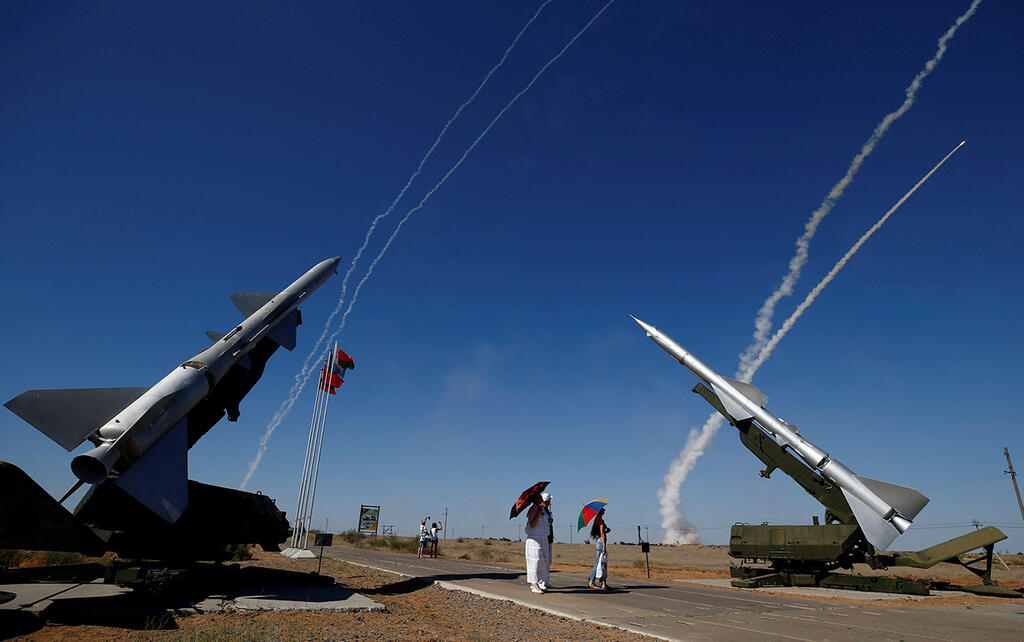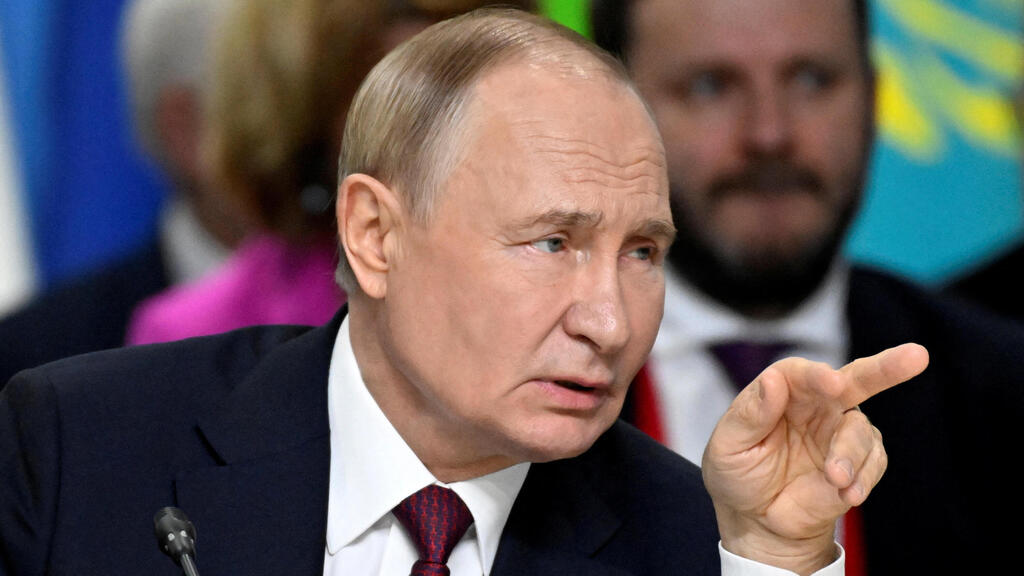Getting your Trinity Audio player ready...
The Israeli Air Force’s dramatic airstrike in Iran executed last week needs to be analyzed within a broader context. According to IDF Spokesperson Rear Admiral Daniel Hagari the strike targeted Iranian anti-aircraft batteries and air defense capabilities.
A significant portion of these systems were Russian-made and, until Russia's invasion of Ukraine in February 2022, were regarded as the pinnacle of Russian defense industry achievements, heavily marketed to foreign nations for years. According to foreign reports, the airstrike destroyed three Russian-made S-300 air defense systems.
Earlier this year, in response to Iran’s ballistic missile attack on Israel on April 14, Jerusalem reportedly dealt a significant blow to the radar of another S-300 battery, making the strike last week effectively disable all such systems in Iranian service.
The successful targeting and destruction of these systems by Israeli Air Force fighter jets undoubtedly undermines the strong and powerful image of Russia's arms industry, even if the systems were operated by Iranian soldiers. This setback adds to the severe blows suffered by the Russian arms industry on the Ukrainian front.
Fires in Iran's missile base after Israel's strike
Over time, the Ukrainians have managed to damage several advanced and highly prestigious Russian military systems. The damaged assets include the flagship of Russia's Black Sea Fleet, the missile cruiser Moskva, sunk in the Black Sea on April 14, 2022, by Ukrainian coastal Neptune missiles, as well as advanced Russian main battle tanks and submarines. Further, Russia’s most advanced air defense system, the S-400, has also been compromised.
According to defense analysts, this system was intended to be Russia’s answer to the American Patriot system. Over the years, the Russians have leveraged these systems’ reputation and successfully marketed and sold them to several countries worldwide, including China, India, Belarus, Vietnam and Algeria.
Israeli strikes in Iran
Carefully crafted promotional videos and publicized operational tests bolstered the prestige of these systems, influencing these countries to purchase them at significant expense.
It's clear, however, that no defense system is perfect or provides absolute protection; for example, Russia succeeded in destroying at least one Patriot system used by Ukraine during the fighting. Even Israel's excellent air defense systems, such as the Arrow or David's Sling, haven’t fully prevented impacts from several Iranian ballistic missiles or Hezbollah drones targeting thr country.
 Yair Navot
Yair NavotThe events in the Ukraine war and the military escalation between Israel and Iran may offer reasons for optimism among NATO leaders, who are observing the Ukrainian and Israeli successes against advanced Russian systems.
These successes might have affected the marketing capability of Russia’s military industry, which is already struggling to meet its export agreements due to the war and the demand it creates within the Russian military itself.
According to the Stockholm International Peace Research Institute (SIPRI), Russia’s foreign military sales plunged by 52% in 2023 compared to 2022. Beyond the internal demand within the Russian military, existing foreign clients may also be rethinking their purchases in light of recent findings from the battlefronts in Ukraine and the Middle East.
This could launch opportunities for other suppliers, including Israel, to serve as potential alternatives.
Get the Ynetnews app on your smartphone:






